I sat uncomfortably in my chair, my stomach in knots and my feet tapping the floor metronomically. My pre-test ritual had always been silence, but my classmates had different ideas in mind: some fumbled for their pencils, others shuffled through their flashcards. Some copied my stoic “The Thinker” approach. Our teacher, Laurie Bass, said she’d be back in a minute with the tests, our first of high school, but time moved slowly and I was growing more and more anxious by the second. Finally, she returned, somehow accompanied by the cozy scent of pumpkins. Yes, she was carrying the tests. But more importantly, she sported a fresh batch of pumpkin bread that she had made just for us. As we began the test, she placed a square and a napkin on the corner of each of our desks. It was delicious.
Laurie Bass has brought rigorous mathematics with a side of sweetness to Fieldston students for 43 years. Though Thursday, June 16, may have been her last as a teacher, it was far from her last as a mathematician. I asked her to ruminate on her life, her career, her love of math and her plans for the future.
I began the interview with a basic icebreaker: “who are you?” Without hesitation, she answered, “My whole life I knew I was going to be a math teacher.” She continued, “[this] makes me an anomaly in this world, having decided this in third grade. That’s what I wanted to do. And then to go and do it and then to do it most of my life in the same place. All these things make me a dinosaur because people change their major five times, and when they get out of school, they change their career many times…But this is always what I wanted to do, and I’ve been able to do it, which has been a great pleasure to me. A great pleasure…[math was] always just a fact of my life. I love doing problems. I love the logic of math. I love the patterns. I love sharing my love of those things. I love getting kids excited about those things.”
“I love being able to take something that a textbook makes static, but make it come alive”––that is perhaps Bass’ mantra as a mathematician. Ironically, she spent twenty years as an author of geometry textbooks at Prentice Hall (now called Savvas). She considered it an opportunity to make geometry more accessible to a national community of students. Even there, Bass found a way to add nuance and creativity to a notoriously dimensionless genre of literature; for a summer, she worked on incorporating fun applications with the newly invented TI Nspire into her textbooks. She would call her partner in California every day at 9:00 AM ET (her colleague was an early riser) to describe to her the activity she had mapped out and what its objective was. Her partner would then translate that into TI commands. “I was just always looking for ways to make it come alive for kids,” she said.
She was indeed, and she still is. As she was with the TI Nspire, Bass has always been interested in technology in the classroom. “I brought Geometer’s Sketchpad to the school 30 some years ago, and I’ve been a big proponent of that ever since. I use other programs in my geometry class. We just used one called Poly, and it allows you to look at all sorts of three dimensional figures, rotate them, and see what they look like. There’s another program I didn’t get to use this year called KaleidoTile (which is freeware) which allows you to look at three dimensional shapes, shave off the edges, lop off the vertices, see what happens to the shape…just really wonderful visualization tools.”
For many years at Fieldston, Bass worked on getting grants. She worked to get laptops and Smart Boards into the hands of math teachers (before this became standard issue) and Polydrons, Zome tools, and other tangible manipulatives into the classroom. These “toys” fill Bass’ office like a treasure trove, each in containers bearing the bruises of years of use. In fact, the day I interviewed her, Bass had used the polydrons for the first time since the onset of the pandemic in her freshman geometry class.
That same day, she had done an activity with her precalculus class she called “Smelling Parkinson’s”. It’s about a woman with a great sense of smell who smelled something funny in her husband. And when he was subsequently diagnosed with Parkinson’s, they went to a meeting for Parkinson’s sufferers and their families, and she was bowled over by the smell. She went to the researchers and she said, ‘you could tell people are going to get Parkinson’s because you could smell it. I could smell it. I smelled this in my husband seven years ago.’ So they gave her twelve T-shirts, six ones worn by people who had been diagnosed with Parkinson’s, and six [worn by people who had not]. And they gave them to her in separate plastic bags and said, see if you can identify these. And she got eleven right. And for the 12th one they said “no, this person doesn’t have Parkinson’s. You’re wrong.’” Bass’ face lit up as she approached the punchline. “And that person was subsequently diagnosed with Parkinson’s. She knew before the researchers knew, before the guy knew. She knew first.” For her probability unit, her class simulated this scenario.
This was just one of many activities that Bass adopted from a math conference. One of the highlights of her tenure at Fieldston is that the school encouraged her to attend these conferences. “I went to a lot of conferences. A lot of conferences. And that made a huge difference, because in every conference, I would bring back activities and topics and points of view that just either electrified my teaching or the things I was learning.” Another favorite activity she learned from a conference was to model the spread of a rumor with her students. “The data has never failed me”–it is always a logistic curve.
Bass could go on for hours about the fascinating applications of math. It is her belief that if “you’re bored by geometry and you’re bored by algebra,…It doesn’t mean math isn’t for you. It just means you haven’t found the right branch of math.” For Bass, of course, every branch of math is the right branch. In her time at Fieldston, she has taught just about every class offered for middle through high schoolers–everything except senior calculus BC, to be exact. Yet, she has always created opportunities for students to pursue areas of math that aren’t listed in the course catalog. She used to teach Unified Math and hosted an Alternative Learning Program (ALP) called the Third Dimension, allowing students to explore mathematical shapes in the fourth, fifth, and sixth dimensions, as well as in fractals.
In spite of her deep love of mathematics, math was one amongst many of Bass’ favorite aspects of her Fieldston experience. It was the connections–with colleagues and students alike–that truly made her time here. “I have a great department, which is supportive and collaborative; I get to learn from them every day.” she said. “And I’ve loved the academic freedom I’ve had here…I don’t have to deal with a state board that says that this is what you have to do in these days.” Indeed, whenever Bass stumbled upon something remarkable in one of her many books or math conferences and proposed it as a lesson to her department chair, the reply was unfailingly a yes.
She is not without her critiques, though. Like a true progressive educator, Bass wishes Fieldston students would worry less about the prestige of their college and more about knowledge. Her “parting message” for Fieldston: “I wish students felt less crazed that if they don’t get an A, all is lost…when students come to me and say, ‘how can I get a better grade?’ I don’t have an answer for that. It’s about learning the math. It’s about getting the math. If you concentrate on the learning, everything else will fall into place because in life later, what’s going to matter is that you know how to be a learner and that you’re you.” This hyper stressed mentality, she says, is “very much against the spirit of inquiry that we’re all trying to have here.”
Though Laurie Bass may be bidding farewell to Fieldston, she is hardly saying goodbye to the world of math and academia. In her retirement, she plans to attend activities remotely and in person at MoMath (the Museum of Math, in NYC), and to continue solving challenging math problems with Mr. Wearn and Mr. Chu (if you’ve ever walked by her office, it’s possible you’ve seen a whiteboard entirely covered with numbers and Greek letters). “Right now, I read half books. I have to return them to the library because I can’t finish them because I have too much work.” In her retirement, she is excited to now have the time to read full books! She will also now be able to pursue her other hobbies in more depth: traveling, going to theater, singing, walking, cooking, sewing and spending time with her husband and two grown daughters.

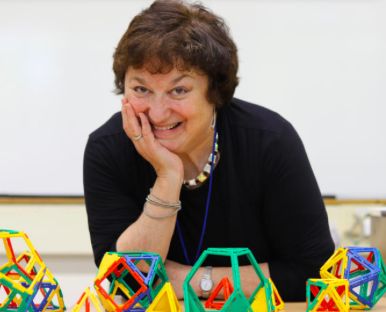
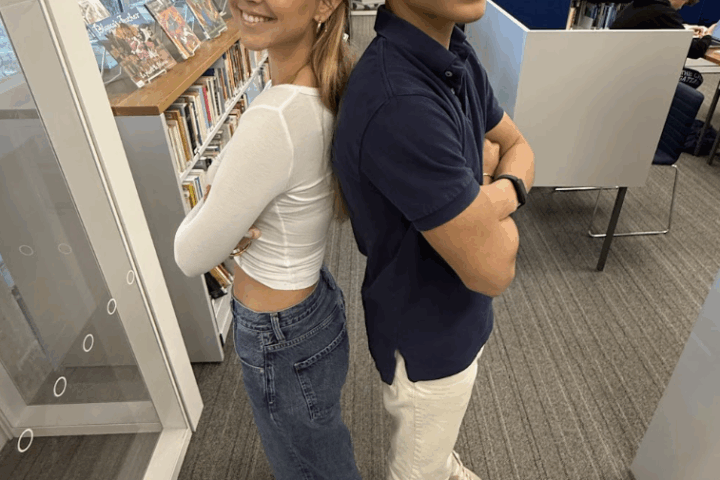
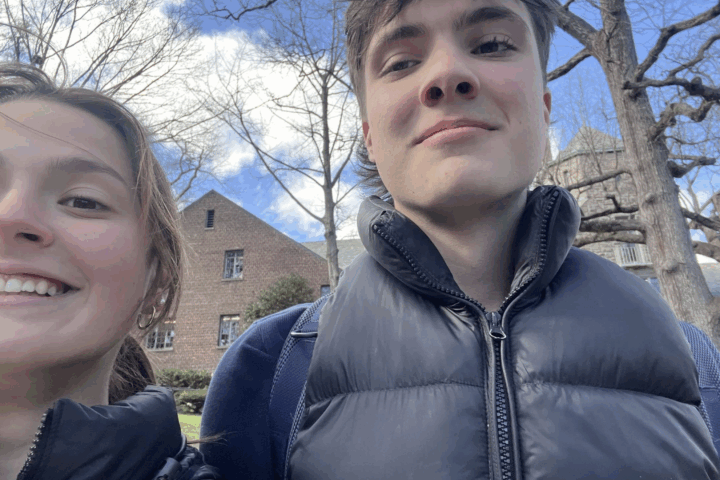
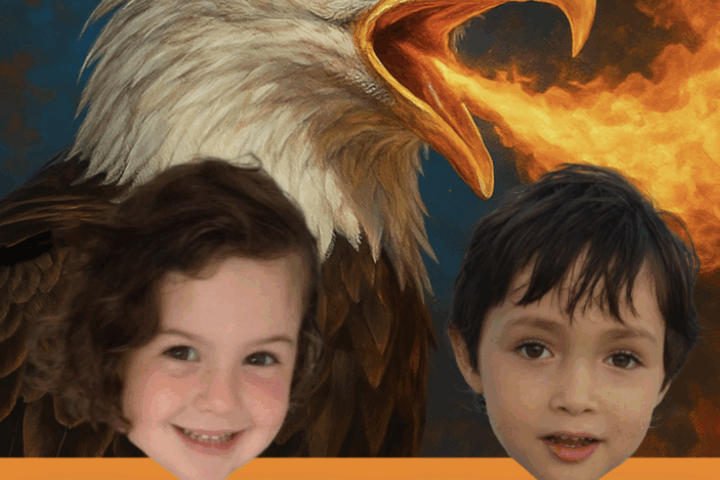
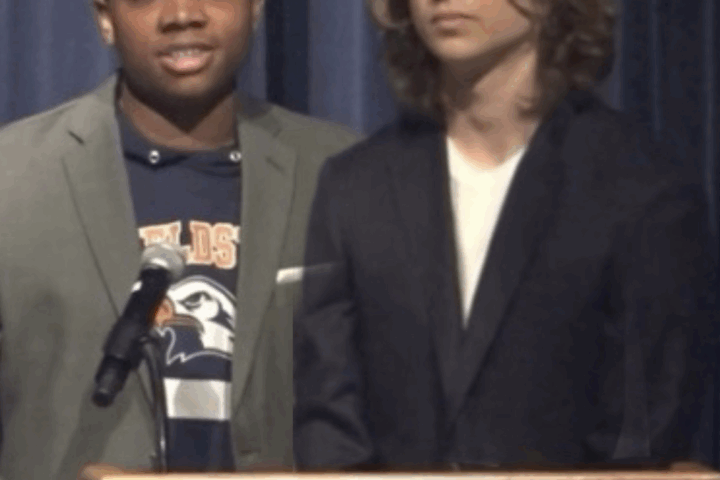
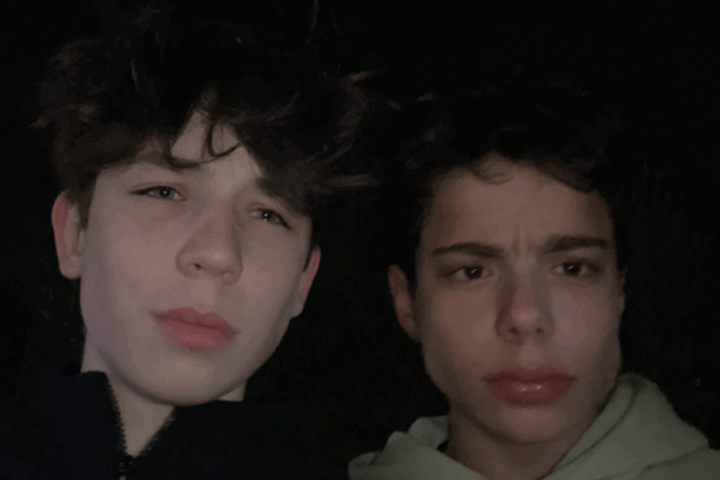
This is so great! Thanks, Brooksie, and most of all, thanks, Ms. Bass!
This is amazing! Thanks, Ms. Bass!